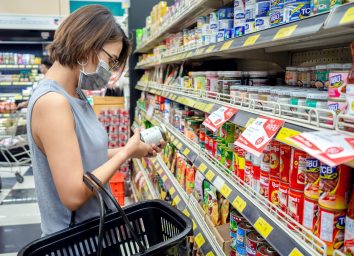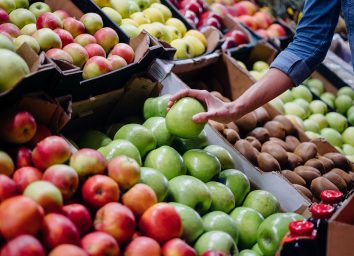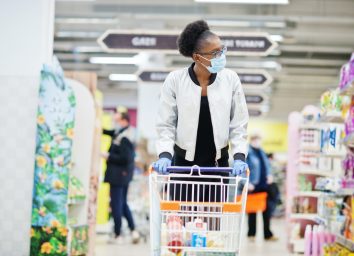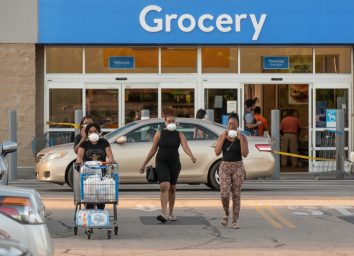The Worst Grocery Shopping Mistake You're Making Before Entering the Store
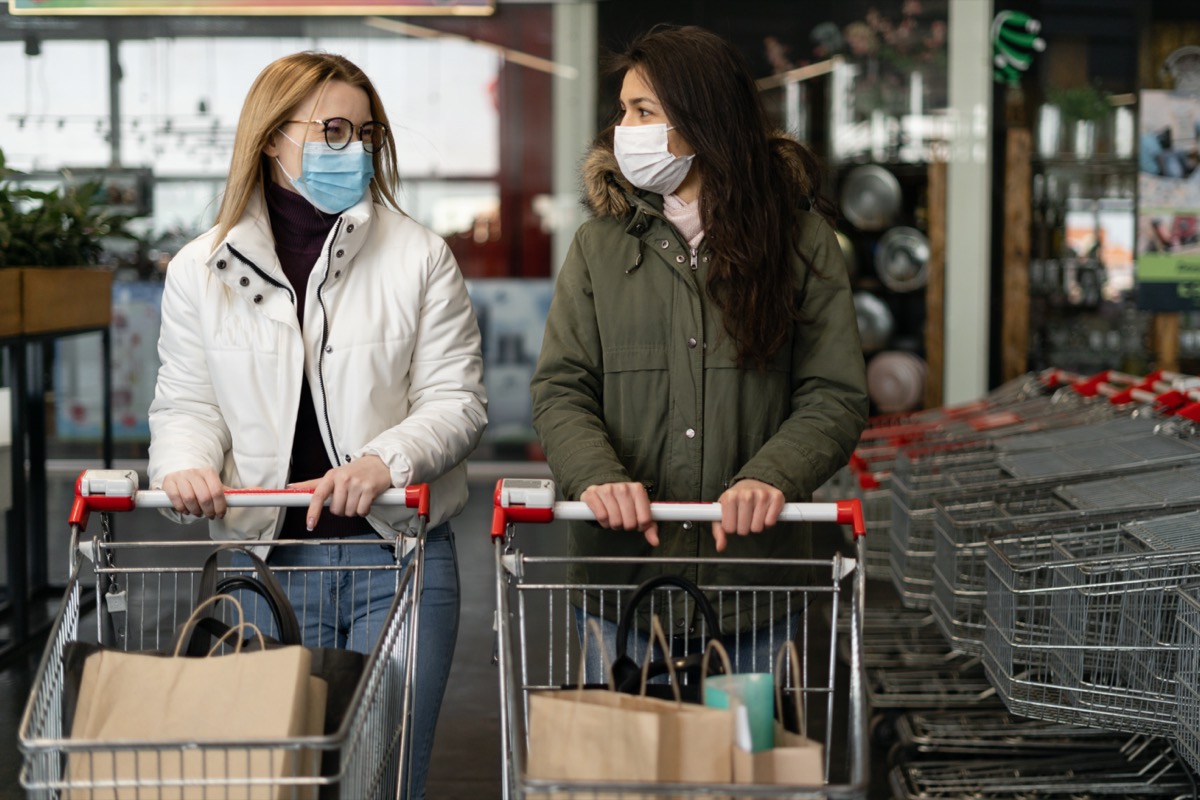
Living our day-to-day life amid the COVID-19 pandemic means constantly evaluating small choices we make. Every decision about where we go, what we wear, and what we buy can seemingly take on life-or-death significance. While the risks of coronavirus should be kept in perspective, there are a few things we are doing that can increase the risk of our exposure, especially when it comes to that activity everyone has to do: grocery shopping.
And one shopping behavior that some maintain presents risks to picking up the virus is something many shoppers thought was a responsible behavior: Bringing a reusable bag to the store.
Until COVID-19 hit, bringing a canvas tote bag or lightweight polyester sack to the store was a way to cut back on unnecessary waste and avoid using plastic bags that would end up in a landfill and never decompose. Concerns about the negative impact of disposable plastic bags led to three states (California, Hawaii, and New York) and major cities (Seattle, Chicago, and Washington, D.C.) banning the use of single-use bags. (New York state's ban went into effect as recently as March 2020.)
In their place, consumers were urged to either opt for paper bags, or, better yet, bring their own reusable tote to put their groceries in. Now, in this topsy-turvy time of a global pandemic, a reusable tote may bring unnecessary risk back to a shopper's home, and expose their fellow shoppers to risks of which they may not even be aware.
An August 2011 study by researchers at the University of Arizona and Loma Linda University found that "large numbers of bacteria were found in almost all" reusable bags, with the particularly nasty E. coli found in 12 percent of the bags reviewed.
The researchers found that when these bags were washed, the bacteria could be reduced by 99.9 percent or more—but that shoppers rarely remembered to give their bags a wash, whether by hand or machine. (It should be noted that this study was funded by the American Chemistry Council, which represents major plastics manufacturers, so would have incentives to discourage the use of reusable bags.)
"So there's the idea that you could bring [the virus] in [to the store], which is what we were testing," Ryan Gene Sinclair, an environmental microbiology professor at Loma Linda University who led the study, told Minnesota's MPR News. "But … as I've been thinking about this since the coronavirus, it's also about bringing things out of the store."
In a 2018 study, conducted by Sinclair and his team and published in the Journal of Environmental Health, shoppers went into three California grocery stores carrying plastic tote bags that had been "contaminated" with a harmless, traceable virus. After checkout, high levels of the virus were found to have been transmitted to surfaces throughout the store: Shopping carts, checkout counters, self-checkout touchscreens, packaged foods, unpackaged produce, as well as the hands of the checkout clerks and shoppers themselves.
"Even if you have a clean, reusable grocery bag, I think anything that you're touching on those surfaces in the grocery store can also bring things out," added Sinclair.
Add to these findings the fact that COVID-19 bacteria has been found to remain on plastic surfaces for days, and you have some good reasons to leave the sack at home.
Concern about how reusable bags can spread a virus has led major chains, including Target and Trader Joe's, refusing to allow customers to bring their own bags into the store. The governors of Illinois, New Hampshire, and Massachusetts have also issued temporary bans on reusable bags as a result.
"Our grocery store workers are on the front lines of COVID-19 are working around the clock to keep New Hampshire families fed," New Hampshire Gov. Chris Sununu said in statement. "With identified community transmission, it is important that shoppers keep their reusable bags at home given the potential risk to baggers, grocers, and customers."
Recently, the CDC updated its guidelines about COVID-19 transmission, emphasizing that it's much more likely to be spread person-to-person than via object surfaces (such as plastic bags). But for those striving to be cautious in their grocery-buying behavior, going with disposable bags, at least for now, may be an easy way to avoid potential COVID-19 risks—unless you can remember to wash your reusable bag each time you use it.
As Joseph Vinetz, a professor of infectious diseases at the Yale School of Medicine, told MPR News: "I think that using billions of plastic bags a year is a bad thing for our environment. But right now, it's even worse for our environment to have an ongoing pandemic." To keep yourself up-to-date on the latest grocery shopping developments, make sure to prep for these changes headed to the chain near you.
